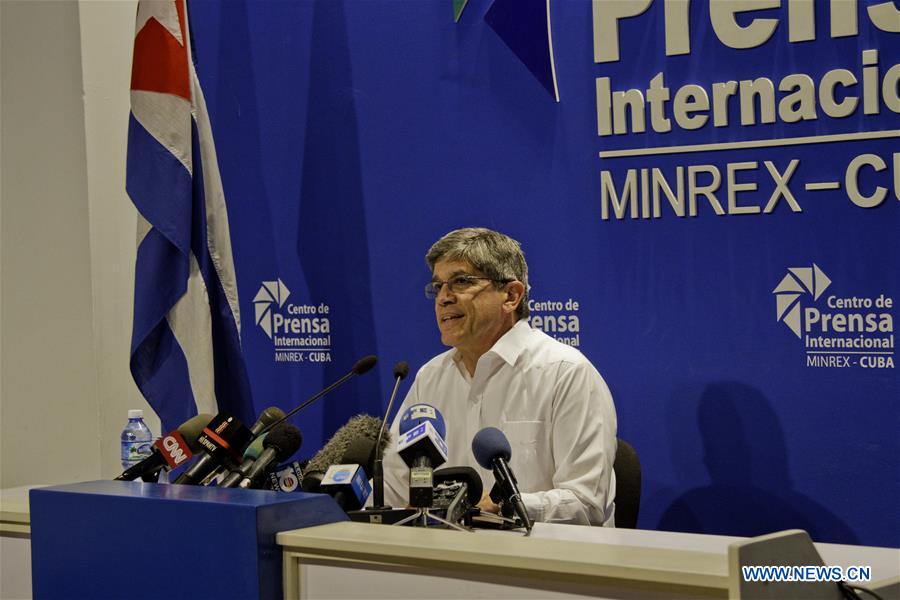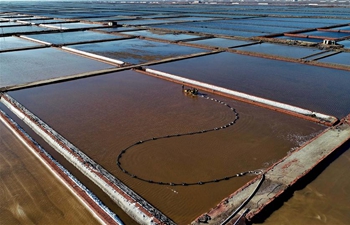
Carlos Fernandez de Cossio, director of U.S. affairs at Cuba's Foreign Ministry, speaks during a press conference in Havana, Cuba, Nov. 2, 2018. Cuba on Friday rejected new U.S. economic sanctions against the island's military and intelligence services announced by U.S. National Security Advisor John Bolton, saying the move has an "electoral interest." (Xinhua/Fan Xiaolin)
HAVANA, Nov. 2 (Xinhua) -- Cuba on Friday rejected new U.S. economic sanctions against the island's military and intelligence services announced by U.S. National Security Advisor John Bolton, saying the move has an "electoral interest."
On Thursday, Bolton said in Miami that the U.S. State Department will expand the list of Cuban entities or companies associated with the military or intelligence sector with which U.S. individuals and companies are banned from doing business.
Carlos Fernandez de Cossio, director of U.S. affairs at Cuba's foreign ministry, told a press conference that the expanded sanctions will have a negative impact on the Cuban economy, which has been long undermined by the nearly 60-year-old financial blockade imposed unilaterally by Washington.
"Cuba rejects the measures announced by Bolton and the language used by that official, as well as the vulgarity, falsehoods, slander and unfounded references against our president and Latin American leaders," he said.
Cuba will continue "defending the sovereign right to choose its own political system," he said, noting these U.S. measures will not prevent Cuba from building a "prosperous, socialist and democratic" society.
"The U.S. measures will harm the people of Cuba, our nationals living abroad and those who want a constructive relationship between the two countries," said Fernandez de Cossio.
He said Bolton made the speech to meet an electoral interest as the upcoming midterm elections in the United States are drawing near.
Bolton's speech is believed to be aimed at consolidating the votes in the upcoming midterm elections in the state, home to many Cuban migrants and represent a further rollback in relations between Havana and Washington.
Bilateral ties have suffered a serious setback since U.S. President Donald Trump assumed office in 2017.
Last year, Trump toughened U.S. policies towards Cuba, prohibiting U.S. companies from doing business with Cuban entities associated with the military sector, and putting restrictions on Americans' travel to Cuba.
Cuba-U.S. relations were also hampered by alleged Cuban attacks on U.S. diplomats based in the island. The incident has led to a partial closure of the U.S. embassy in Havana and the U.S. expulsion of 15 Cuban diplomats.
Over 20 U.S. diplomats and their families were found to suffer symptoms such as hearing loss, tinnitus, vertigo, headaches and fatigue since the first report of the incident in November 2016.
Months of investigations by security agencies of both countries failed to prove the alleged attacks. Cuba said the issue was "politicized" to justify Washington's bid to set back the thawing ties between the former Cold War enemies.
Also on Thursday, 189 UN member countries approved a non-binding resolution demanding the United States end its embargo against Cuba.











